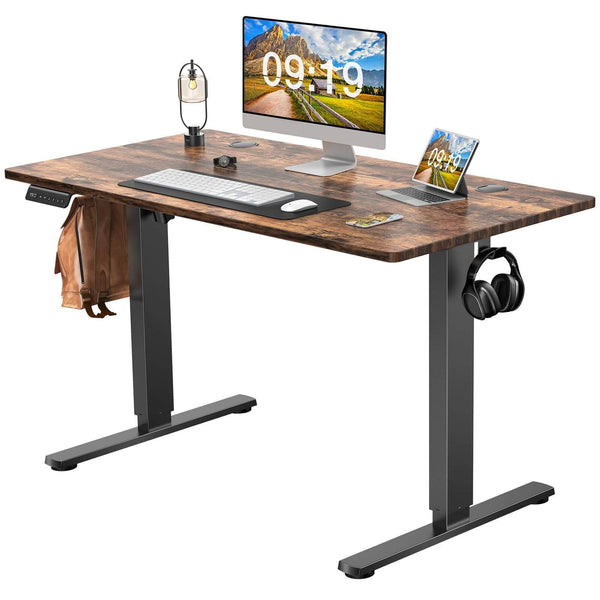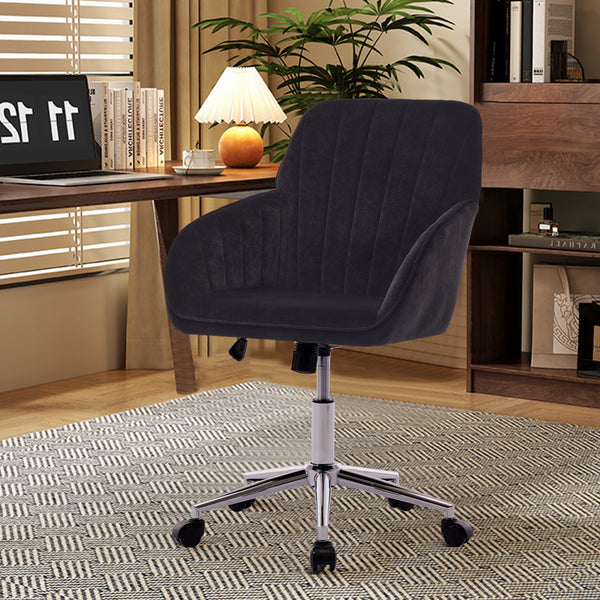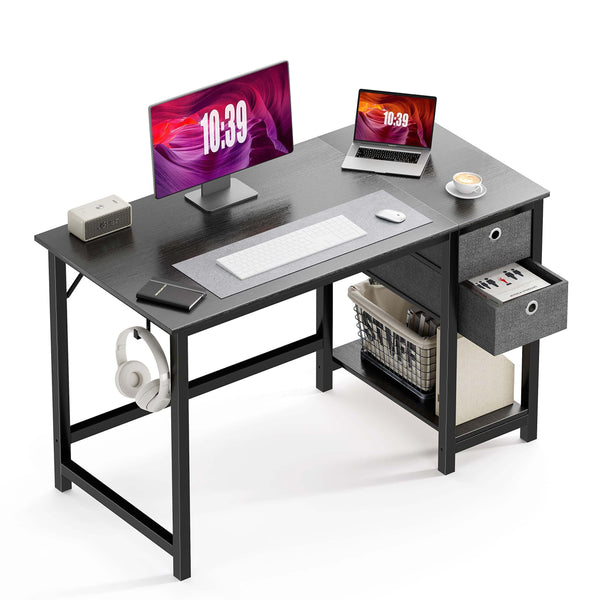The Ultimate Guide to Ergonomics: Sitting & Standing at Your Computer Desk
Introduction: Why Workspace Ergonomics Matter
Modern professionals spend approximately 1,800 hours annually at workstations (Bureau of Labor Statistics, 2024). Poor ergonomics contribute to:
-
49% increased risk of musculoskeletal disorders
-
23% productivity loss due to discomfort
-
Accelerated spinal degeneration
This guide merges evidence-based seated posture with dynamic standing strategies for holistic workspace wellness.

Section 1: Perfecting Seated Posture
1. The Gold Standard: 90-90-90 Alignment
-
Lower Body:
-
Feet flat (hip-width apart) with 90° ankle flexion
-
Knees at chair-edge level, 2-3 finger gap behind knees
-
Thighs parallel to floor (use height-adjustable chair)
-
-
Upper Body:
-
Elbows at 100-110° (slightly more than 90°)
-
Shoulders relaxed away from ears
-
Screen height ensuring 15-20° downward gaze angle
-
Clinical Insight: A 2023 BMJ study found this alignment reduces disc pressure by 40% compared to slouching.
2. Advanced Adjustments
-
Lumbar Support: Rolled towel or memory foam wedge (3-4cm thickness)
-
Armrests: Adjust to lift shoulders minimally (prevents trapezius strain)
-
Keyboard Tray: -5° tilt to maintain neutral wrists
3. Movement Integration
-
20-20-20 Rule: Every 20 minutes, look 20 feet away for 20 seconds
-
Microbreaks: 30-second stretches hourly (neck rolls, wrist circles)
Section 2: Optimizing Sit-Stand Workstations
The Science Behind Alternation
-
Metabolic Boost: Alternating every 30 minutes increases calorie expenditure by 54 kcal/hour (Mayo Clinic)
-
Cognitive Benefits: Standing enhances creative thinking by 17%
-
Postural Relief: Reduces lumbar compression by 35%
Transition Protocol
-
Beginner Phase (Weeks 1-2):
-
10 minutes standing per hour
-
Use timer apps like Stand Up! (iOS/Android)
-
-
Intermediate Phase (Weeks 3-4):
-
25 minutes standing every 75 minutes
-
Introduce balance board for active standing
-
-
Advanced Maintenance:
-
45-minute sitting / 15-minute standing cycles
-
Walking meetings for prolonged tasks
-
Equipment Essentials
Product CategoryKey FeaturesRecommended ModelsHeight-Adjustable DeskSmooth transition (≤3 sec), memory presetsUplift V2, Fully JarvisAnti-Fatigue MatGraduated density, bevelled edgesErgodriven Topo, Imprint CumulusPROMonitor ArmGas-spring adjustment, VESA compatibilityAmazonBasics Premium, Ergotron LX
Section 3: Synergized Daily Routine
Sample Schedule (Knowledge Workers)
Morning Deep Work (8:30-11:30):
-
50 min seated focused work → 10 min standing review
-
Incorporate balance board for light movement
Afternoon Collaborative Work (13:00-16:00):
-
Standing during calls/virtual meetings
-
Seated for detailed document editing
Ergonomic Assessments
-
Self-Check: Monthly photos comparing posture to ideal alignment
-
Tech Tools:
-
PostureScreen Mobile (posture angle analysis)
-
ErgoAI (real-time webcam feedback)
-
Conclusion: Building Sustainable Habits
Implement these changes gradually:
-
Week 1: Adjust chair and monitor height
-
Week 2: Introduce standing intervals
-
Month 2: Full ergonomic audit
Remember: "The best posture is your next posture" Invest in your workspace today for lifelong health dividends.



Hinterlasse einen Kommentar
Diese Website ist durch hCaptcha geschützt und es gelten die allgemeinen Geschäftsbedingungen und Datenschutzbestimmungen von hCaptcha.